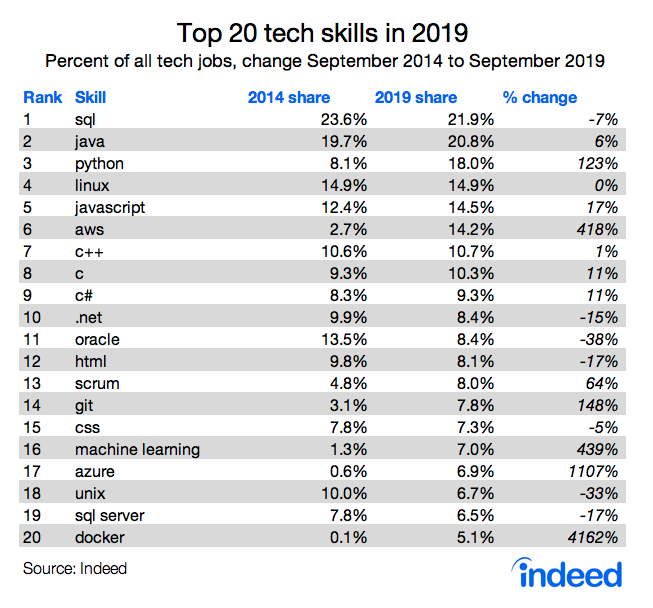Recruiting company indeed published some interesting findings last month about trends in Tech Skills over the past five years. They compare the top 20 tech skills as a percentage of all Tech Jobs between 2014 and 2019 - here's a summary of their findings:
 |
| Image source: indeed.com. |
The standout changes are the growth in Python (123%), Amazon Web Services - AWS (418%), Machine Learning (439%), Azure (1107%), and docker (4162%). No real surprises there, but what is a surprise to me is the absence of the R programming language from both the 2014 and 2019 lists. R is a popular programming language in the data analysis domain, and we use it a lot on the Higher Diploma in Data Analytics at NCI. It is the language I teach in the Programming for Big Data module, and I also use it in my statistics and data visualization classes. Most students on the course use R for projects and assignments.
As the Higher Diploma programme is due for its five year programmatic review, we will need to have a debate of what the preferred language to use is. Based on the indeed data above, it would appear that Python should take preference over R. I am of the opinion that if you can learn one language, that other programming languages should be easier to adapt to - but why add an extra step if Python is the tool of choice for most jobs? Python is also regarded by many colleagues as easier to learn than R, but since I have never used it I can't really judge. More research will be needed to inform us better of what choice to make. Changing a language in a module has many knock-on consequences for course resources, exercises, labs, and assessments - as well as of course requiring Lecturers and Teaching Assistants to be skilled in Python.
No comments:
Post a Comment